Humans
Sign up for our newsletter
We summarize the week's scientific breakthroughs every Thursday.
-
 Life
LifeMicroRNAs manage gut microbes
MicroRNAs mold gut microbes into healthier communities for the host.
-
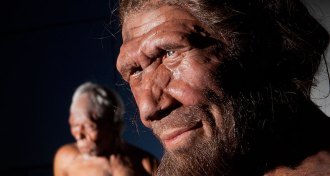 Science & Society
Science & SocietyHuman evolution, biomimicry and more go on display
A new human evolution gallery and a lecture series on Europa are among science events to explore in February 2016.
-
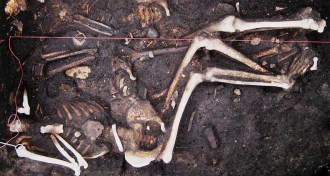 Genetics
GeneticsBubonic plague hung around in Europe
DNA from plague victims suggests that a European reservoir of the plague bacterium Yersinia pestis could have fueled the medieval pandemic.
-
 Health & Medicine
Health & MedicineCDC issues travel guidelines for pregnant women
Pregnant women should consider postponing travel to much of Latin America and the Caribbean.
By Meghan Rosen -
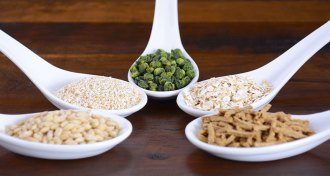 Health & Medicine
Health & MedicineLow-fiber diets make gut microbes poop out
A low-fiber diet makes for low bacterial diversity in mice. A new study shows those mice can then pass a denuded microbiome on to their offspring.
-
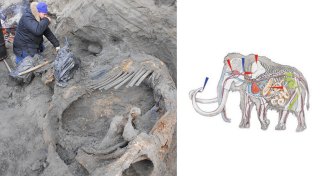 Archaeology
ArchaeologyHumans visited Arctic earlier than thought
Human weapon injuries on mammoth bones show humans were in the Arctic up to 15,000 years earlier than researchers thought.
-
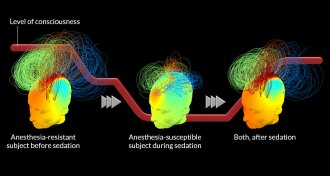 Neuroscience
NeuroscienceMeasuring brain waves may help predict a patient’s response to anesthesia
Brain signatures hint at whether a person will resist or succumb to anesthesia.
-
 Science & Society
Science & SocietyInsights into sexes’ differing responses to stress
Chronic stress takes its toll on everyone. One of our reporters follows a line of research suggesting that stress hits women harder (or at least differently) than men.
By Eva Emerson -
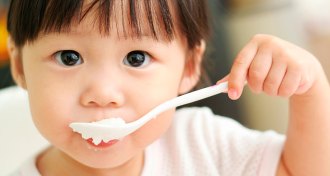 Life
LifeSigns of food allergies may be present at birth
Overactive immune cells may prime babies for food allergies.
-
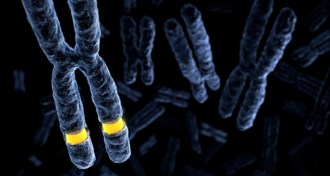 Genetics
GeneticsDrug candidate fails to improve symptoms of fragile X syndrome
A drug designed to treat fragile X syndrome has proven ineffective in clinical trials.
-
 Genetics
GeneticsDrug candidate fails to improve symptoms of fragile X syndrome
A drug designed to treat fragile X syndrome has proven ineffective in clinical trials.
-
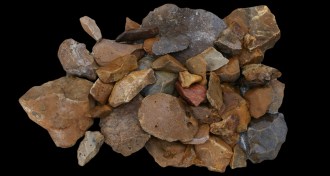 Archaeology
ArchaeologyAncient stone tools raise tantalizing questions over who colonized Sulawesi
Hominids reached an island not far from hobbits’ home by around 200,000 years ago.
By Bruce Bower